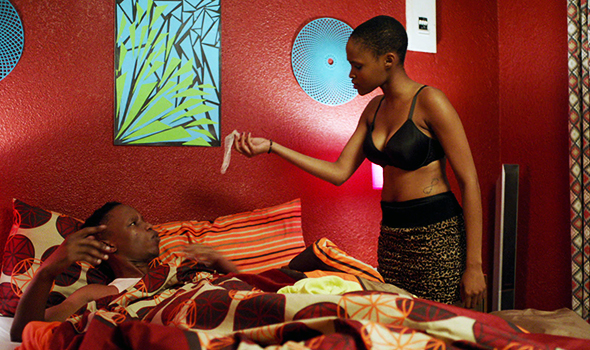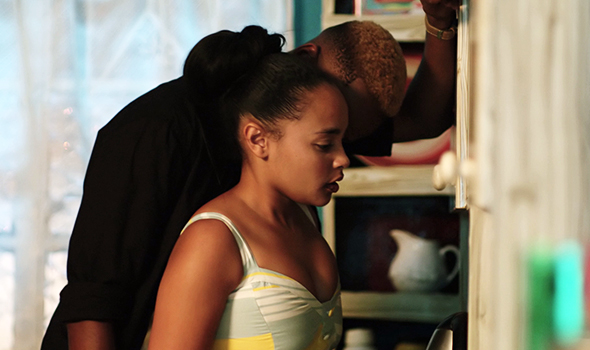Many believe that sexual assault by someone you’re in a romantic relationship with isn’t as serious as if it were with a stranger.
This is a complete myth.
Thoughts such as these actually hurt more than they help people who are assaulted. The damage done when someone is raped cannot be undone.
While different forms of sexual assault are not worse than others and should not be compared, it is an agonising experience to constantly see your rapist, share a lived space with them and even remain in a relationship with them. The way people think of rape and sexual assault (within a process that is fuelled by rape culture) is that the rapist is a stranger and that there must be proof of the violence: bruises, scratches, tears, physical pain. Yet, rape does not have to tick boxes to qualify it as such. The trauma that follows is the same whether or not you had had sex with the person before.
Whether you had engaged in kinky sex with the person before. Whether they were a relative or a friend. Whether the person bought you a drink, or you had been out with friends, or you went home with them. The trauma remains.
Within the context of a relationship, rape can happen in various ways. Some may not have felt like having sex and their partner chose their own pleasure over their partner consenting. Others may have been sleeping, medicated or drunk and therefore unable to give their consent. It could even happen in the middle of sex, if they decide that they don’t want to have sex and their partner continues, or if they were having one type of sex and their partner does something else without their consent (see ‘stealthing’ for one such example) .
These are all just a handful of examples of sexual assault within a relationship and while many of us may not understand why a person would go ahead and choose to assault someone they love, others have a sense of power that cannot be deterred by their partner saying no.
I can already guess what question is on your mind: so why would they not leave? And as much as one wishes there was an easy answer here, there isn’t. As with people in physically and emotionally abusive relationships, some find it easier to leave than others. Being sexually assaulted by someone you’re in a relationship with is traumatising; it also leaves you confused and shaken. Perhaps because you had never thought that the person you love could harm you in such a way, perhaps because you don’t think it’s rape because it’s them or even just because it wasn’t physically violent. And this is part of the problem. As is the shame.
Many will not leave because of it and many more will blame themselves. They’ll be completely hard on themselves, blame themselves and come up with scenarios on what they could’ve done to prevent it from happening, to make the assaulters stop. They’ll struggle to articulate their hurt. And even then, we must acknowledge that it is a crime and it still causes trauma. And it is not a ‘lesser’ form of rape because they are your partner.
Anyone who rapes is a rapist. It does not matter if it’s a stranger, your boss, your friend or a loved one. If they violate you in anyway, they are the ones in the wrong.
It’s no wonder that in a society that constantly tells people that their bodies are not theirs, that many victims will be silent when they are sexually assaulted. If you are confused about whether it was rape or not, it does not make it any less legitimate. If you are unwilling to call it that, at first or at all, that’s also okay. Naming something as traumatising as sexual assault can be extremely difficult; this does not become easier because you know your assaulter.
It also does not lessen the fact that it is rape if the person chooses to share what happened to them years after it happened. It does not diminish what happened to them, nor does it mean they’re lying. It may be from a deep sense of shame, fear and trauma that they chose to stay silent. Perhaps at the time they did not even realise it was rape. Perhaps they were not ready to share. Whatever reason it may be, it is completely their decision whether they want to share what happened to them with other people.
A woman who had been repeatedly raped by her boyfriend noted that after it would happened she would hold him while he cried. She said, “For many victims, it's easier to think of your experience as some sort of "rape lite" than to deal with the mess that is being in love with your rapist. It's easier to invalidate your own experience than to accept it. Of course, this brings another cloak of shame. Admitting that I stayed with my rapist is still painful for me… It feels almost incomprehensible to even attach the word rape to someone you love. Like you're betraying them…Rape has no caveats. Rape cannot be eclipsed by love or a sense of duty. I realise that now. My rapist knew what he had done and, deep down, on some level, I think they all do.”
While I mentioned rape culture often here, it is important to note that the culture would hold no power if it were not for the people acting on it, using it to their own advantage and using their power to traumatise others. If you have been a victim of sexual assault, please do what you can to get yourself the support you need. Whether it’s a friend, a family member, an anonymous person on the internet who cares or someone at the below centres and helplines.
Know this: I’m sorry that happened to you and know that I believe you.
For more information and support, check out the below resources or contact a local medical professional for further advice.
South Africa
Stop Gender Violence Helpline: (0800 150 150 – 24 hour helpline)
Rape Crisis: (021 447 9762 – 24 hour helpline)
Nigeria
The Mirabel Centre
Kenya
Healthcare Assistance Kenya (HAK): (1195 – Toll Free Helpline)
For more information on the issues covered in this article and in MTV Shuga: Down South, visit our very own knowledge page for more information, advice and resources...



